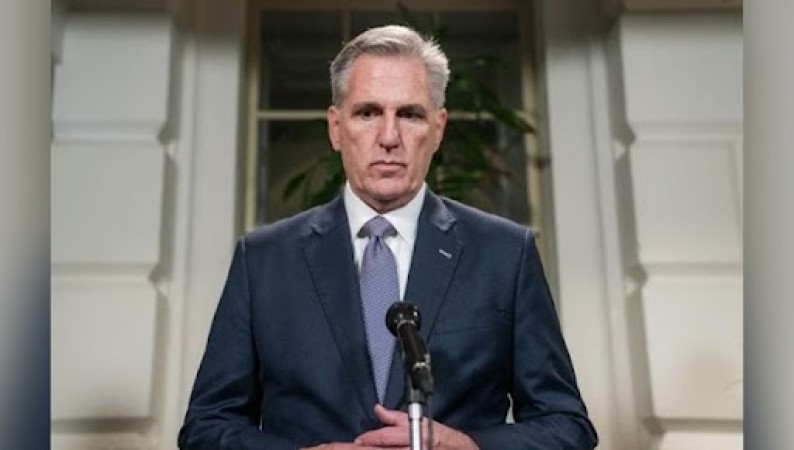
Kevin McCarthy's removal as Speaker of the House has plunged the United States Congress into a state of uncertainty, leaving the nation to grapple with the consequences of a leaderless House. This turmoil increases the risk of a looming government shutdown in the coming month and possible delays in providing further assistance to Ukraine. Let's delve into the key developments the House is now facing:
Who Holds the Reins?: Patrick McHenry, a Republican hailing from North Carolina, currently assumes the role of Speaker pro-tem. However, his authority is severely constrained by the rules, rendering him incapable of overseeing routine legislative matters. His primary duty is to facilitate the election of a new Speaker. Should a deadlock in choosing a Speaker persist, the House might grant McHenry limited temporary powers to preside over discussions and votes on regular bills, contingent upon a majority vote.
The Quest for a New Speaker
Kevin McCarthy's decision not to seek re-election expedites the process of selecting a new Speaker. If he had engaged in a protracted struggle against the eight Republican adversaries who contributed to his downfall, it would have prolonged the uncertainty. McHenry has set the date for Speaker elections on Wednesday, October 11. On the preceding Tuesday, the House Republican majority will hold a closed-door meeting where potential candidates can declare their candidacy. The conference will subsequently vote to designate their nominee for the speakership. If a formidable contender emerges, McHenry intends to proceed with floor votes to inaugurate the new Speaker.
The Mechanics of the Speaker Election: The Speaker election will be carried out through a roll call vote on the House floor. With two vacancies in the 435-member chamber, a candidate must secure 217 votes for victory, assuming all members participate and none abstain by voting "present." In January, McCarthy clinched the speakership only after a record-breaking 15 rounds of voting. Achieving unity among the Republican conference behind a consensus candidate presents a formidable challenge, given the divergent objectives of swing-district moderates and staunch ultraconservatives responsible for McCarthy's ouster.
Potential contenders to replace McCarthy include senior leadership figures such as Majority Leader Steve Scalise of Louisiana, Majority Whip Tom Emmer of Minnesota, or Conference Chair Elise Stefanik of New York. The conservative Freedom Caucus might nominate its own candidate, although one potential candidate, Chip Roy of Texas, has expressed disinterest. Moderates could also promote their candidate, like Brian Fitzpatrick of Pennsylvania. Additionally, Republican Study Committee Chairman Kevin Hern and Freedom Caucus member Jim Jordan remain viable prospects. Some lawmakers advocate for former President Donald Trump, although this remains a remote possibility, as the Speaker does not necessarily have to be a sitting member of Congress.
Democrats' Clear Path Forward: Democrats have a comparatively smoother path ahead. They are expected to nominate Hakeem Jeffries of New York, the current minority leader, to the position of Speaker.
House Business in the Interim: The House has adjourned until October 10th, with members returning to their respective districts. In the absence of a new Speaker, legislative votes on crucial matters, such as pending fiscal 2024 spending bills, are likely on hold. The House rules do not anticipate granting McHenry full Speaker powers due to the limited role of the Speaker pro-tem. Nevertheless, House committees retain the ability to conduct their business. This means that the impeachment inquiry into President Joe Biden can continue, and the Appropriations Committee can still greenlight two pending spending bills.